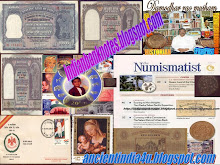Mooru Rayara Ganda,King of three kings
Śrī Krishna Devarāya (Tulu: ಶ್ರೀ ಕೃಷ್ಣದೇವರಾಯ, Kannada: ಶ್ರೀ ಕೃಷ್ಣದೇವರಾಯ, Telugu:శ్రీ కృష్ణ దేవరాయులు) also known as Krishna Rai in some inscriptions was the famed Emperor of the Vijayanagara Empire who reigned from 1509 - 1529 CE.He is the third ruler of the Tuluva Dynasty. Presiding over the empire at its zenith, he is regarded as an icon by many Indians. Emperor Krishna Deva Raya earned the titles Kannada Rajya Rama Ramana (ಕನ್ನಡರಾಜ್ಯರಮಾರಮಣ),
) and Andhra Bhoja (ఆంధ్రభోజ).
Krishna Deva Raya was one of the greatest statesmen which medieval South India had produced. Especially for Telugu people he will remain forever in their hearts as the greatest king ever to rule the Āndhradeśa(Telugu land) as his period is considered as Swarnayuga (Golden period or Zenith) in the cultural and literary history of Telugus. Much information about his reign comes from the accounts of Portuguese travelers Domingo Paes and Fernao Nuniz. Krishna Deva Raya benefited from the able prime minister Timmarusu, who was regarded by the emperor as a father figure and was responsible for his coronation. Krishna Deva Raya was the son of Nagala Devi and Tuluva Narasa Nayaka, an army commander under Saluva Narasimha Deva Raya, who later took control of the empire to prevent its disintegration and became the founder of the Tuluva Dynasty, the third Hindu Dynasty to rule Vijayanagara. The emperor's coronation took place on the birthday of Hindu God Krishna, and his earliest inscription is from July 26, 1509 CE. He built a beautiful suburb near Vijayanagara called Nagalapura in memory of his mother, Nagala.
) and Andhra Bhoja (ఆంధ్రభోజ).
Krishna Deva Raya was one of the greatest statesmen which medieval South India had produced. Especially for Telugu people he will remain forever in their hearts as the greatest king ever to rule the Āndhradeśa(Telugu land) as his period is considered as Swarnayuga (Golden period or Zenith) in the cultural and literary history of Telugus. Much information about his reign comes from the accounts of Portuguese travelers Domingo Paes and Fernao Nuniz. Krishna Deva Raya benefited from the able prime minister Timmarusu, who was regarded by the emperor as a father figure and was responsible for his coronation. Krishna Deva Raya was the son of Nagala Devi and Tuluva Narasa Nayaka, an army commander under Saluva Narasimha Deva Raya, who later took control of the empire to prevent its disintegration and became the founder of the Tuluva Dynasty, the third Hindu Dynasty to rule Vijayanagara. The emperor's coronation took place on the birthday of Hindu God Krishna, and his earliest inscription is from July 26, 1509 CE. He built a beautiful suburb near Vijayanagara called Nagalapura in memory of his mother, Nagala.

















